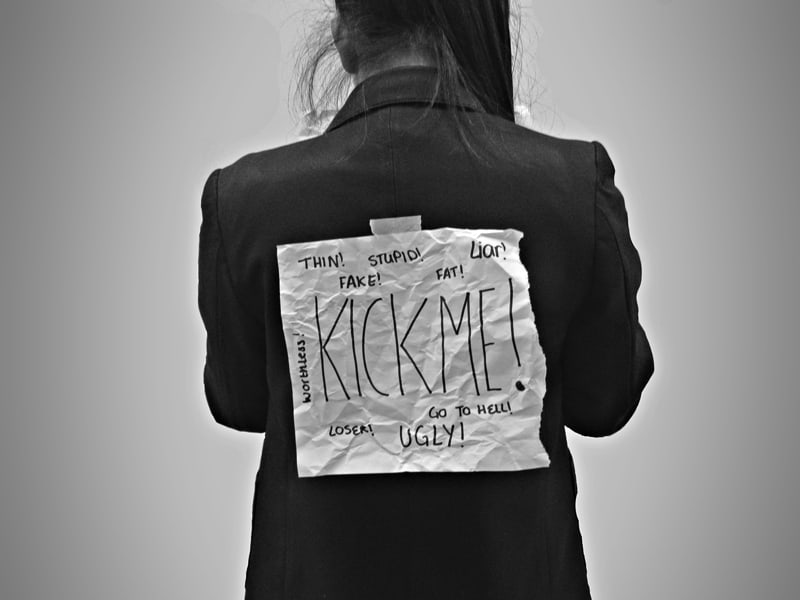So many of us have experienced the heartache of learning that our tween or teen is being bullied. In fact, three in five Australian kids will experience bullying at school or online. It’s a painful feeling of helplessness, sadness and dread. We know how this is probably going to go down and it’s a bloody long road for our darling kid to have to travel.
The angst you are feeling for your child is well placed. Despite how dishearteningly widespread bullying seems to be, it should never be dismissed as being “just a part of life”.
“Bullying is not just a part of growing up,” Dr Sally Fitzpatrick, Cool Kids Program Manager and Conjoint Senior Lecturer at the University of Newcastle, wants to remind us. “There are poor outcomes for kids that are victimised, right through to adulthood.”
Worrying long-term outcomes of bullying
According to Reach Out, these immediate outcomes can include, and aren’t limited to:
- feeling alone and helpless
- feeling unsafe and afraid
- feeling guilty, with kids often blaming themselves for the bullying
- feeling stressed and anxious
- feeling depressed, sad or down
- poor academic outcomes.

Bully-proofing your kid
- to draw attention to themselves / become more popular
- because they’re jealous
- to look tough or feel powerful
- because they are being bullied themselves.
Being bullied is an awful thing to go through, no matter how old you are or how ‘strong’ you are as a person. Even for a kid with stronger self-esteem, the feeling of injustice is the hardest to deal with: the fact that its so unfair that a bully has made you the target when you feel like you’ve done nothing wrong.
The fact is, anyone can become the victim of a bully, depending on the bully’s personal reasons for victimising someone in the first place. There are, however, certain characteristics that mean a child is less-likely to be bullied than others.
Bully-proofing starts with family
According to Evelyn Field, OAM author of the classic book Bully Blocking (available as an ebook here), kids who are part of a connected, communicative family are generally more bully-proof than others.
“These are kids who have learned to call out behaviour that goes against their values from a young age,” Field says. “They’ve been taught to stand up for themselves at home, and so are more likely to stand up for themselves elsewhere.”

Field’s definition of a “connected” family includes a family that has meals together, most likely talking about their day. There’s plenty of eye-contact, and everyone is interested in everyone else. The family is courteous and gives each member the space to talk and be listened to.
“This family culture builds important skills that help kids block bullies,” says Field. “They make eye contact with others, their body language shows them to be confident and assertive, and they use a lot of ‘I’ references. Less assertive kids tend to be more vulnerable to bullies.”
Field is quick to stress that qualities like assertiveness, confident body language and standing up for ourselves are all learned skills. Families often rely on schools to teach these skills, but often schools are failing. Parents therefore need to step up and do some role playing and deliberate skill building with our kids.
Which is all well and good to prevent bullying, but what to do when you discover that your tween/ teen is being bullied already?
Four ways to help if your tween/ teen is being bullied
1. Listen to your child, every day.

2. Work on your child’s self-esteem
“Help children to have enough confidence in themselves so that they don’t believe what the bully is saying to them,” Dr Fitzpatick says. Basically, you want your child to have many sources of good vibes to counteract any sources of bad.
Dr Fitzpatrick says that this may mean fostering friendships outside of school. It also applies to spending time with grandparents, family friends and other people who care deeply about your child and love the way they are. By building good, supportive relationships with a diverse range of people, kids know the messages the bully sends don’t apply to them.

